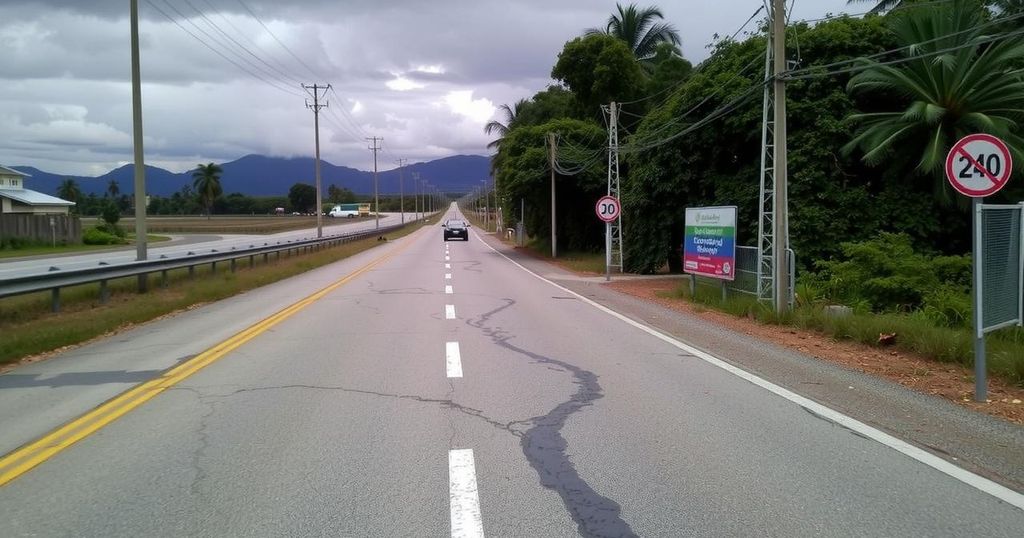Venezuela Closes Colombia Border Amid Protests Over Maduro’s Swearing-In

Venezuela has closed its border with Colombia ahead of President Maduro’s third term inauguration. Opposition leader Maria Corina Machado led protests against his regime, facing temporary detainment as international condemnation mounts. Reports indicate increased repression of dissenters in the lead-up to the ceremony, as Maduro’s administration grapples with accusations of electoral fraud and human rights abuses.
Ahead of President Nicolas Maduro’s impending third term inauguration, the Venezuelan government has closed its border with Colombia. The action, taken by Freddy Bernal, governor of Tachira, was justified as a means to prevent purported international conspiracies aimed at destabilizing the nation. This closure, set to remain until Monday, coincided with widespread protests led by opposition leader Maria Corina Machado, who was briefly detained after rallying for democratic reforms in Caracas. In a show of international solidarity, several leaders decried the actions against Machado, with Colombia’s President Gustavo Petro labeling it as systematic harassment.
On the eve of the swearing-in ceremony, Machado, who has been vocal against Maduro’s regime, urged supporters not to live in fear despite government crackdowns. Reports of increased repression against dissenters have emerged, including detentions of opposition figures and aggressive tactics to suppress protests. The United Nations expressed concern regarding the escalating violence against protesters, which has resulted in numerous arrests and fatalities.
The political landscape remains tense as Maduro, who has faced accusations of election fraud, gears up for his third term amid significant opposition. His ability to maintain power has been attributed to military support and a system of patronage that favors loyalty over democratic principles. Meanwhile, international responses, including statements from former President Donald Trump, emphasize the need for the safety of opposition leaders and call for a transition to democratic governance. Amidst these challenges, Maduro’s administration continues to assert control, further complicating Venezuela’s journey toward potential stability.
Venezuela is currently facing a turbulent political climate marked by intense opposition against President Nicolas Maduro, who has held power since 2013. His re-election in 2018 was heavily contested and condemned both domestically and internationally due to allegations of electoral fraud. Despite these accusations, Maduro retains significant control, notably through military support and a loyalist political structure. The recent protests against his third term inauguration signal widespread discontent among Venezuelans, largely fueled by ongoing economic hardships and human rights violations. Opposition leader Maria Corina Machado’s leadership in these protests highlights the continued struggle for democracy in the face of systemic oppression.
In conclusion, the situation in Venezuela takes on a critical dimension as President Maduro prepares for his third term amidst widespread protests and international condemnation. The government’s closure of the Colombian border and detainment of opposition figures underscore its repressive tactics to quash dissent. Machados’s determined stance has galvanized supporters, highlighting the ongoing struggle for democratic reforms. The international community, while vocal in its support for Venezuelan opposition, faces the challenge of navigating a complex and hostile political environment under Maduro’s administration.
Original Source: www.lemonde.fr








